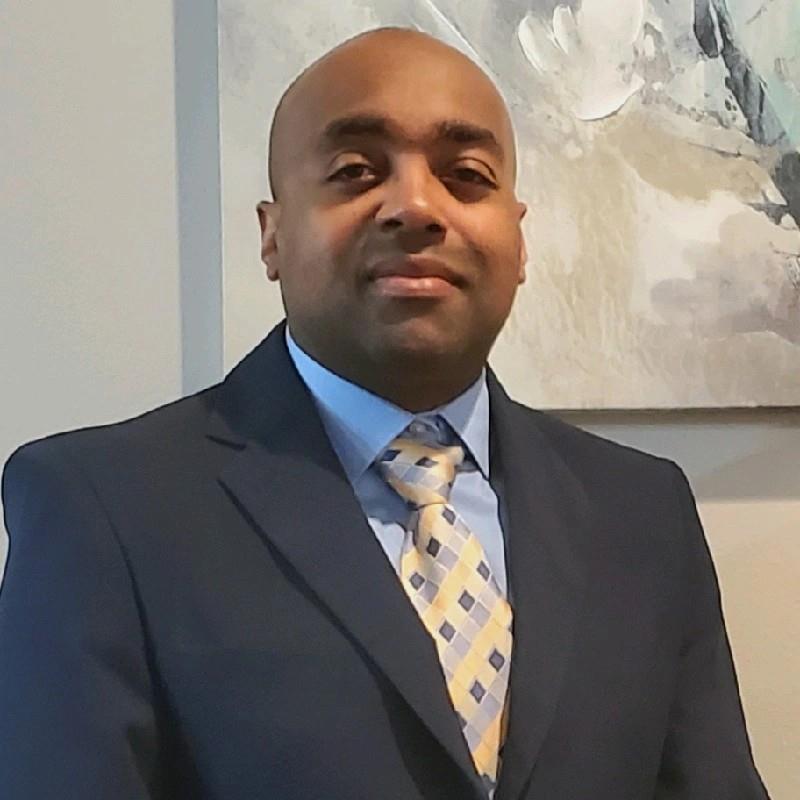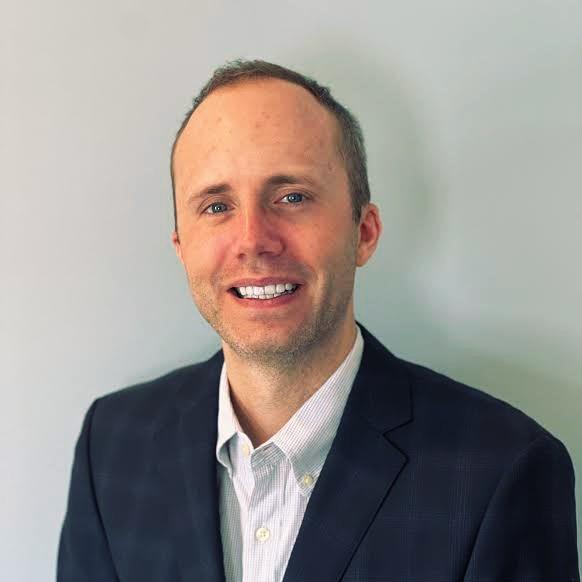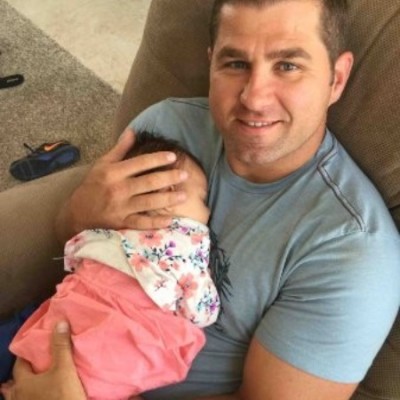
As you tune in to this episode, you will learn about the power of strategic impatience to get you to the role that you want in your organization. Curious about what “strategic impatience” means? For starters, it has to do with thinking like an executive and marketing yourself as your own brand within your organization or industry. Samuel Gbadebo does things a little bit differently as he interviews Demetrius Peoples, the Senior VP of Sales & Operations at Assurance America. Demetrius used to try his hand at pharmaceutical sales but ended up in life insurance marketing and found that there are so much more similarities than differences between the two roles. Through his strategic impatience, Demetrius not only rose to an executive position in his company; he practically created it for himself. Tune in to learn how you, like Demetrius, can think like a CEO from the onset and show the top brass in your company that you have what it takes to join in their ranks.
—
Listen to the podcast here
The Power Of Strategic Impatience
Thank you for reading this episode. I wanted to address you before you hear my guest and the interview. Normally, I always have a guest that’s in medical sales, whether it’s pharmaceutical sales, medical device sales, diagnostic testing, biotechnology or something else. In this episode, you’re going to hear from someone that’s in a completely different industry. I felt it was important to have him as guests because of what he’s been able to do in his own career and how he was able to do it. Demetrius Peoples is a life insurance executive. He catapulted from a sales rep to a senior VP executive relatively quickly in the corporate world of life insurance.
What’s interesting are the actions he took to make the headway he did. I want you to pay attention to how he made the connections he made, how he pushed boundaries and pushed a personal brand that people in higher positions wanted to support. The methods he used and continues to use can be applied anywhere, and especially be applied to professionals that want to enter medical sales and medical sales professionals that want to advance their careers. I hope you enjoy this episode. Before we get started, I have a couple of programs that show you how to break into the medical sales industry, become a top-performing medical sales professional, and masterfully navigate your career to executive-level leadership. Visit EvolveYourSuccess.com to find out more.
—
We have an interesting guest. We’re going to do something a little bit different. In this show, we talk a lot about getting into medical sales and thriving in your career. We also touch on how to navigate within your career. How to find and develop your network so you can advance and do amazing things within your career? It applies to medical sales, but it also applies to other fields. We have a guest with us that has mastered the process and taking himself to new heights with his own company and field, and that’s in the insurance field. His name is Demetrius Peoples. He’s a Senior Vice President of Sales and Operations for AssuranceAmerica. Demetrius, I’m glad you can make it. How are you?
I’m doing fantastic. Thank you for having me.
As you heard me introduce, I want to talk to you about how you started your career. Where did you want to go to college? Where did you go with your first opportunity? Walk us through some of the things that happened.
I’m one of those rare people that have always known which industry or career path they wanted to go in, which was marketing for me. Where that started was I was nine years old and I was probably watching a movie that I should not have been watching. The movie was called Boomerang. It was an Eddie Murphy movie. In that movie, he was in marketing and advertising. He was an executive. I didn’t know it at the time, but I was watching that movie and I’m looking at this guy. I said, “This guy dresses nice. He walks with a briefcase in his hand. He’s got a nice house. He’s popular. He seems like he has it together.”
Even though I was playing sports at the time and I had aspirations of the NFL and all those things, for some reason, Marcus Graham, his character in that movie, resonated with me. Although at nine years old, I didn’t know exactly what he did, I knew I wanted to do that. That was the starting point. From there, everything that I did through middle school and onto high school was directed towards getting into marketing and advertising. I’d watch commercials growing up and always thinking to myself what I would do differently than those commercials, what I could do to make that product a lot more marketable or get even more attention on certain things. “They should have done this instead of that.” Those were the things that were going around in my head even in high school and middle school.
When I got a football scholarship to college, although I thought NFL could be an option, in the back of my mind I was thinking, “I love this sport, but what I love more than this sport are this marketing and advertising thing. I loved looking at things and trying to find ways to sell them to people.” That’s what drove me. I ended up going to a Division II school to play football. The school was in Hickory, North Carolina. It was called the Lenoir-Rhyne College at the time, now it’s Lenoir-Ryne University. It was a great experience. I double-majored in Marketing and Management. I created a lot of great relationships throughout college. College is always a place where you discover yourself. You start to get introduced to people that have various backgrounds and experiences. You utilize those things to grow as an individual and grow your thoughts beyond where you grew up in your environment that you were comfortable in as a child and as a kid. You start to develop new thoughts and ideas.
In college then, was it maybe on the way out your senior year that you start to get clear about what you want to start right when you graduated? Where did you start to develop those new thoughts about where you want it to be and what you wanted to do?
[bctt tweet=”Regardless of the level you come in, you should immediately start trying to see things from the executive level.” via=”no”]
That started in my junior year. I had a hamstring tear that put me into reality mode, “The NFL is not going to be for you. You better concentrate on the whole marketing thing and let’s stop wanting to be Barry Sanders and let’s start shifting over to Marcus Graham.” That’s what led me to start doing interviews. It’s interesting that I’m on this particular show. Let me start here, my mom was a nurse and going into my senior year in college, she started telling me about this job that I’d never heard of called a pharmaceutical sales rep. She worked in doctor’s offices and she said, “They got free cars and they make a lot of money. They bring us food.” I said, “That sounds like something I wouldn’t mind doing.”
It was interesting because one of the alumni of the college was one of the executives in Pfizer. I thought that was the perfect connection. I started reaching out to different people that were associated with the school and then seeing how I can break into this pharmaceutical sales industry. Going into my senior year, that was my focus. I graduated and moved back to Florida and started interviewing for different pharmaceutical sales companies. I interviewed for Pfizer a couple of times. I interviewed for Astellas a couple of times. I don’t know that I ever interview for AbbVie, which is where Joe works. There were a few different pharmaceutical companies, some big and some small, that I interviewed for.
I was still looking to break into the industry. Right as I was gaining some ground on some contacts in the pharmaceutical sales industry, I ended up meeting a guy at one of my best friend’s wedding. He was the future father-in-law and he owned an insurance company. His name was Bill Shively and he owns Tower Hill, which is the third-largest homeowner’s insurance company in the State of Florida. They’ve moved into other States since then. He asked me what I was looking to do. I told him, “Pharmaceutical sales.” He asked me if I’d ever been interested in insurance and I said, “No, I have no interest in insurance.”
He said, “Think about it because we have this management training program for recent college graduates. We have a job or a role here called a marketing rep and it aligns well with what you’re looking to do. Instead of calling on doctors, you’re calling on independent insurance agents. Instead of pushing a medication, you’re pushing our brand of insurance and trying to get them to sell more of Tower Hill Insurance versus selling Travelers, Nationwide, or whoever else they’re appointed with.” The jobs or roles are similar. That sparked my interest.
I ended up taking him at his word. I interviewed for the management training program and I got chosen. I brought in myself and three other candidates. It was an interesting program and I’ve implemented programs like it throughout my career at different companies I’ve been associated with. The program was interesting because you did a rotation through every aspect of the insurance business. You would do a rotation for two months in claims. You do one through underwriting, actuary, legal marketing, the whole gambit. You’ve got a chance to see how a business works and you’ve got a strong foundation for how things are put together.
It was one of the best experiences I’ve ever had in my life because what it did was it allowed me to see beyond my small department and get some perspective on how things come together as an organization. I stopped seeing things from an associate-level and started seeing things from more of an executive level. That’s something I’ve always coached anyone that’s reported to me. Regardless of the level, you come in, even if it’s an entry-level position, you should immediately start trying to see things from that executive level.
It’s a good thing I did not meet you back then because I would’ve worked to get you a pharmaceutical sales position. We’ll be having a completely different conversation. Let me ask you this then. You went through this program and you did well. You develop this foundation and appreciation for the work that you were doing in the insurance game. When did it start to head towards where you are now when you were saying, “I’m going to go from marketing rep to some executive leadership role, the senior VP? Was that a plan from the beginning or did things just happen, and as you went along, you were molded into where you are?
I always tell people what I like to call strategic impatience. It boils down to seeing things from an executive level, even at an entry-level position. I started at an entry-level position in the marketing department. I saw myself spending more and more time with the executives within the organization, picking their brains, asking them for mentorship and guidance. What turned the table and what caused me to start moving in a different way than maybe my colleagues was I rotated through the underwriting department. I won’t say the guy’s name, but I believe he still works there. This guy was one of the most brilliant insurance minds I had ever run across. He knew everything about insurance and he was an underwriter too. There were four different levels of underwriters, then you became a senior, then you became an underwriting manager. He had been with the company for about six years at the time.
I remember talking to the president of the company one day. Let’s call the guy, Dave. I said, “I was talking to Dave in the underwriting department and I gained some great perspective from him on how things come together and make the organization work. He’s the smartest guy I’ve ever run into in the insurance industry.” The president said, “Who’s Dave?” I thought it was interesting that he didn’t know who this guy was and he had to be one of the most talented individuals in the organization.

From that moment I realized that it’s not just about working hard and the knowledge you gained. You have to transition your thought into, “How can I market myself within this organization?” Regardless of what role I’m doing, I have to have a CEO’s focus. That has to be my goal at every single step. How do I get there and fast track my way to there? When I came in, there were no marketing rep positions available at the time. I created a marketing rep position. I was sitting at home one day I said, “It would be interesting if we had a marketing rep that focused on this niche.” I pitched that to the president and the CEO. They bought it and they created a position for me. I fast-tracked my way into the marketing rep position.
Shortly after that, a recruiter reached out to me about a territory manager position with another company. I was comfortable where I was. I had a great reputation within the organization. The CEO went to lunch with me and he invited me to dinner. I felt that I had a future there and this is where I talk about strategic impatience. I said, “Even at this new position they’ve created for me, they’re not paying me what they’re paying everybody else.” At the time I might have been making $45,000, $40,000 a year. I had a company car. They gave me all the perks, just not the salary.
A recruiter reached out to me for an even larger company. One of the largest insurance companies in the United States, AIG. He said, “We have a territory manager position we’d like you to pursue.” The first thing I asked was, “What was the pay?” It was going to be an increase of $25,000 or so. I ended up making about $70,000. I took on that role and it was with a bigger organization. My mindset was, “I’m with this mid-level or mid-size insurance company. I need to get the perspective of working for this humongous national monster of a company. How can I fast track my way within that organization?” I got there and immediately started coming up with ideas on how to grow the organization, how to implement a management training program that I had gone through at Tower Hill. I utilize a lot of those same experiences. Maybe not the first minimal step up the ladder, but by the 3rd, 4th and 5th one, they started to recognize my ideas.
You went from Tower Hill into AIG with this nice new bumpy salary. From your role, you started reaching out to leadership? You say you sent memos. Talk to us a little bit about what that looked like specifically.
I ended up researching the company’s database and directory. I ended up finding the CEO and president’s email address somehow. I started shooting memos out to these guys. These were 2 or 3 pages on how to take the company that was already one of the biggest insurance companies in the United States from where they were to that next level. A lot of it was innovative ideas that were outside of the box type thought. Some things that I gathered from Tower Hill like the management training program. AIG had a training program, but I didn’t think it was as robust as Tower Hill’s program. I kept shooting memos after memos and with no response. I never gained a response. It wasn’t until we had a national sales meeting in Atlanta. I ended up getting introduced to one of the regional VPs at the time. I told him my name and he said, “I’ve heard about you.” I was surprised. At this point, I had been with the organization for about 6, 7 months.
I didn’t know how this guy that lived in New York heard about me living down in Florida. He said one of the executives, our senior VP, keep getting these emails from me. They said, “You seem to have some good ideas. I’d love to chat with you from time to time if that’s okay with you and you can expound upon those ideas.” I looked at that as an opportunity to not only gain a mentor but also a connection at a high level. He and I started setting up biweekly calls where I would hop on a call with him for 15, 20 minutes, and shoot him some of the crazy ideas that I had that I didn’t know would work. He would punch holes in it and vice versa. He would give me knowledge on how to maneuver myself throughout the organization.
How long into this new role did this take to put you in the position that you put yourself in with the biweekly conversations?
From the time that I came on board to the time that I had that conversation with him, you’re looking at about 7, 8 months.
Within a year, you were having conversations with leadership about executing leadership.
[bctt tweet=”Growth and comfort can never coexist. Always look for ways to make yourself uncomfortable.” via=”no”]
Yes.
What happened next?
At this time, I’m still a sales manager, territory manager, which is on par with a marketing rep, but I’m getting that big company experience and exposure. I’m seeing how big companies operate versus a mid-size company. 2008, 2009 recession hit and this is where I always tell people, “You have to continue to look at things from a CEO’s perspective.” What’s interesting is when that recession hit, AIG as big of a company as it was, it started to sell off different divisions. I sent the memo to the guy that I had connected with who was a regional VP. My memo was all about which divisions they should choose to sell-off. Mine, being one of them. I remember him responding to me and saying, “You do know that you’re suggesting eliminating your position.” I’m just looking at things from a corporate perspective and I’ll always try to look at things from a corporate perspective. Moving forward, it makes more sense to dissolve this part of the organization.
My mindset behind that was I didn’t have any fear per se. Some people would say that’s crazy, but I’ve always felt like I’m talented enough, that I’ve got the connections and they’ll find a place for talent. When you look at things from a CEO perspective, you start to understand how CEOs think and how they make their decisions and it gives you foresight. I knew that even if it wasn’t my idea that did it for them, that it made business sense for them to dissolve that part of the organization. I started reaching out more and more to the senior VP. I also started interviewing for other large organizations, one being Nationwide Insurance. I ended up getting an interview with Nationwide while I was still on board at AIG. They offered me a territory manager role. It was a lateral move, but it was a decent amount of more money. I took them up on that offer and six months into that role, they ended up dissolving that department in AIG.
I dodged a bullet there but I saw it coming. I saw the writing on the wall. There was no doubt in my mind if I would have maintained the communication and stuck it out, I would have been able to find myself into a secure role within the organization. I saw also the opportunity at the time with Nationwide because it was a company that was trying to regrow Florida. They had cut back in Florida in prior years and they were trying to launch the State of Florida for them. It’s one of their biggest states. I saw that as a growth opportunity. Why not come onboard with this other large company that’s looking to aggressively grow in a state that I know? I jumped at that opportunity. We’re talking from the time that I started with Tower Hill to where I’m at Nationwide. I’m making $80,000 something and with bonuses. I’m in the six figures and you’re talking about a five-year gap between my start at Tower Hill and then at Nationwide.
I worked at Nationwide as a territory manager for four years before I was promoted to a regional director of sales and I had eight states in the Southeast. Honestly, with that position, that was my first real taste of, “You’re in a leadership position and you’re able to have a little bit more influence on some of these ideas that you have. You’ve got a little bit more leeway to implement those ideas within the organization at least for that region.” I took it upon myself to do that with the authority that was given to me. Our region became the number one region of the company and won the Region of The Year Award. It was a great experience and I was in that role for all of one year when I saw a vice president job open up for this smaller insurance company that was fledgling, bleeding money out and failing. I said, “I’m going to take that role.”
Would you say that making that move to that VP position with the smaller company was because you wanted to get more understanding on how to run things from that perspective? Was that driven by the mere fact that you wanted to progress in your career and this seemed a great opportunity?
It was a combination of both, but if I had to put a percentage to it, I would say 80% of it was me progressing in my career. I had goals for myself, financial goals and then also goals in terms of the title that I had. I wanted to be one of the youngest executives in the industry. At the time, I’m in my late 20s, early 30s, I’m thinking to myself, even as a director, I’m only a minority director at the time in the company and the youngest. I looked at this VP role. Two or three people try to talk me out of it. One of my mentors at Nationwide high up. He was one of the executives over the whole organization. He said, “You have a future here.” I told them where I was looking to go. He said, “I’ve done my research. This is not a good company. They’re failing. You need to stay where you are. You’re comfortable here. You’ve got a great reputation within the organization. You’re going to fast track your way into an executive position. There’s a future here for you.”
I thought about it for a couple of days and for me, it was more betting on myself. I said, “Even at what he calls fast track, I’m still looking at ten more years and six more moves within the organization throughout the United States before I get to that executive level. I’ve got this executive-level position right here for an extremely small company that’s failing but I can revive it.” I bet on myself. I felt like, what’s the worst-case scenario? The company may end up failing but if it does, I will be in a position that I’ve got the relationships where I can get myself into another good position.

Not only that, but you’d also have an entirely new title you see playing in an entirely new field of opportunities.
I took on that VP role. I left Nationwide, a comfortable position where I was making good money. I increased my base salary by another $30,000, $40,000. I moved on to this little fledgling insurance company in South Florida. I was with them for a year and a half. I had to come in and fire most of the territory managers because that was part of the reason the company was failing. I had to create a whole new team. They had seven territory managers in the State of Florida and what I did was I cut the team in half and we increased business after I cut the team in half. We started to become a lot more profitable. I stopped the bleeding. We stopped losing business. We got to the point where we were flat. I would have continued with that organization too but myself and the CEO didn’t see eye-to-eye and what it was. He wanted to take the company in a different direction, a different industry. It was more of the tech field, which was interesting to me. I like the way he was thinking and he thought outside the box and we got along great.
However, he hired me to do a job. He hired me for this VP role. He hired me to revive the organization and all that work I have put into reviving the organization, we’re just starting to see the fruits of my labor. He wanted to dissolve the insurance organization and push the money into this tech company that he wanted to get going. Because of that, a lot of these relationships with the independent agents in Florida. I couldn’t see myself walking into those offices with the territory managers that reported to me and saying one thing when I knew we were going to do another thing. Because of my relationships with recruiters and everything, there was another position that opened up and it was a VP role. I was able to make a lateral move to a bigger company that was located in Tampa. That was Maison Insurance. I came on board as their VP of Sales and Marketing.
In one year, I doubled the company in size. We were in three states: Florida, Texas and Louisiana. We went from a $32 million company to in 1.5 years, $100 million company. We were making money and we were profitable. I hired a whole new team there as well. It was a great experience. I’m going to say a lot of it was an opportunity to make even more money but what it boils down to is I had this mindset where every time I came on board with an organization, I gave myself high goals to hit. If the organization has said that the forecast is they want it to be at a 10% year-over-year growth, I would tell the CEOs that I’m going to double the company in size in that year. It didn’t always happen that way but a lot of the times I got too close. It was that ambition of mine that I always felt that I knew how to run these companies better than the CEOs.
Some of that was fool’s gold, but some of it I knew I had innovative thoughts. I can’t speak for the pharmaceutical sales industry, but in the insurance industry, the average age of an executive is in the mid-60s. You don’t have a lot of youth. Many times I’m coming in and I’ve got to fight two things. I’ve got to fight the whole age thing because everybody that I’m sitting in the boardroom with is my parents’ age. There’s also the minority aspect of things. You have to overcome those two things. I embraced those challenges at each level. I was with Maison for almost three years until I came onboard where I am now. It was an even larger insurance company here in Atlanta. I’m at AssuranceAmerica and I am a senior VP of Sales and Operations. I’ve been with this company for a few months. I’m new with the organization and looking to build my reputation here.
It seems like an organization that I can set my foundation with and grow with the organization because they’ve gone from a $70 million company to a $200 million company in a short period of time. They’ve grown profitably, which is not easy to do in the insurance industry. That’s the high-level shortcut version of my career. There was a lot of stuff in between those things. I showed and improved. As a territory manager, I won a lot of awards with all the companies I’ve been with. Having that CEO’s perspective and I never stopped sending those memos and ideas. I kept those relationships with every one of those individuals that I created those bonds with. Even to this day, I have 12 or 13 mentors that I’ve collected throughout my career that I still talk to on a quarterly basis.
You’ve been consistent throughout your career. I’m curious to see where you’ll be a couple of years from now, which company you’ll be running because you’re on your way. With the smaller roles that you had, starting with the territory manager, you did a lot of things to think from a CEO’s perspective. Now, with you already being close and being such a big part of the decision-making process, how do you still demonstrate that type of activity? Thinking from the CEO’s perspective, how are you doing it? Is it that you’re trying to influence the decision the CEO makes from your position or is it that you’re maximizing what you know you can do in your role? What are you doing to demonstrate that same activity you’ve been demonstrating throughout your career?
It boils down to thinking outside of the box and continuing to push yourself to have innovative thoughts. I’ve always said even the people that I mentor to this day that growth and comfort can never coexist. You always have to look for ways to continue to make yourself uncomfortable. If you look at my career, anytime I started to get comfortable in a particular role, I look for ways to make myself uncomfortable. If the challenge was not there anymore, I was exceeding goals and meeting those new challenges, then at that point, that’s when I knew it was time for me to make a move. I never waited for the organization to start making changes that adversely impacted me. I’ll always look for ways to say, “Let me add some adversity in my life because I don’t want to get bored and get too comfortable and complacent in this role.” I’ve always leaned on the people that I’ve mentored, because some of those people have been younger than me and some of those people have been older than me, but they come with new ideas and perspectives. I take those in and I shoot ideas still to this day to the CEO and president of our organization.
I always try to look at things from, “If I’ve maxed out all of my ideas in insurance, what can I do to bring new ideas that are even outside of insurance that could tie into what we do and then we can create a whole new source of revenue that doesn’t have the risks that insurance does?” Insurance is a risk business. You’re always trying to operate and create that balance within that system. If we can create some revenue flow that is not adverse to growth like insurance is. Joe and I joke a lot because he’s in a sales and marketing role and I’m in a sales and marketing role. I have one sales and marketing role, and this is what people don’t understand about insurance. If you say that we want to grow by 10% as an organization, I can grow the organization by 50% and it’d be a negative thing to the organization. In insurance, if you grow too quickly, that causes more claims and then your profitability takes a hit.
[bctt tweet=”Stop seeing yourself as an associate or an employee. Start seeing yourself as a brand. Market yourself.” via=”no”]
For me, it’s always been that fight with, “I want to continue to push myself to this next level but by pushing the sales and marketing, sometimes they can adversely impact my company’s bottom line.” It’s always trying to figure out ways, “With that being said, how do I increase the bottom line and still continue to ambitiously and aggressively push the organization to new heights and growth?” That’s what I bring to the table. It’s less on how do we implement certain things that are going to grow the organization by 50% in the insurance operation. It’s more, how can we grow the organization by adding these other components that can grow us profitably and grow our bottom line? Also, how do we develop our people so that we’ve got younger versions of myself that are coming up that are going to make the company even better than what I can make it?
You talk a lot about mentors and you said you have 12 to 13 mentors. That’s great. You have much that’s pouring into you for you to then digest process and implementing your own way. What is an effective way to get these mentors? Would you say it was by happenstance because you were working in the company, you were pushing these ideas to leadership so you happened to come across people that like who you were? Do you deliberately say, “I want him or her to be my mentor?”
It can be a combination of both. For me, it was more capitalizing on opportunities. When I saw a person that I looked at their career and they had an interesting career path whether that was because they moved throughout the company quickly. Whether it was because they had a title and everybody talked about how great of a leader this person or this individual was. That will cause me to want to reach out to that individual. I wouldn’t always wait to get introduced to that individual. I do my research, whether it was through LinkedIn or it was through the company’s intranet. I find ways to get in contact with that person either via email or phone. Most of the people that mentor me, I bothered them initially more than impressed them because I kept sending my ideas to these people without any response. After a while, that consistency that you create might be bothersome to people at first, but then they start to admire. They start to recognize your name when those emails or phone calls come through. Slowly but surely, I started wearing them down.
Similar to this, we’re all watching this Last Dance documentary on the Bulls. Jordan, in the last couple of episodes, talked about Kobe Bryant and how he pestered Jordan all the time about being a mentor to him. It was similar to my story. I kept at it until these people broke down and said, “Okay.” It was always looking at it from this perspective. I’m not just asking something from you. I’m providing something as much as I’m getting something back. You got the experience but I’ve got the innovation. Any time that I was getting ready to talk to one of these mentors, anytime that I was sending an email or memo up the ladder, it was always me providing something first, and then asking for them to provide feedback on that idea or time to discuss the idea to punch holes in it.
Some of these ideas I thought were good ideas. I’m like, “If you hadn’t thought of this yet or if you haven’t implemented something like this yet, there must be a reason for that. Poke holes in it. Tell me why I’m crazy for thinking this way.” Those are the things you have to do to establish those mentor relationships. You have to make sure that when they get off the phone with you or when they finished sitting down for lunch with you, you have to make sure that they’re walking away with as much as you walk away with.
Demetrius, we can do this for hours. I love listening to you. Your career has been amazing and you’ve made some bold moves that I’m glad the audience got to get an understanding of. Let me ask you a few questions before we close it down here. If you could go back and tell yourself anything when you first started as a territory manager with Tower Hill, what would you tell yourself?
If anything, it would be to even bet on myself more than what I did. Even though I got my first VP role at 33, 34, I would say that I could have had a VP role 2 to 3 years earlier. I would tell myself to take those chances a lot sooner than I took it. I know it seems like my career moved quickly and I switched jobs quickly, but there were a lot of times when there was some bit of fear and a false sense of loyalty that play roles in me staying longer than I did. You as a person have to stop seeing yourself as an associate or an employee and start seeing yourself as a brand. That would have been a message to myself. Look at yourself as a brand and how would you market that brand? You know how to market all these other brands but you are a brand yourself, your name. How do you market that and how do you take that brand to the next level? I didn’t realize that until four years into my career.
Your best piece of advice to yourself is to be even more aggressive, which is great because you come off aggressive with your careers so far. What keeps you able to keep at it, be consistent, be aggressive and go for bigger and bolder? If anything, if it’s naturally who you are and that’s the way it’s always been, so be it. If there’s something that sustains you, what would you say that is?
It’s never getting comfortable. I still feel like I’m behind my goal. I’m still chasing that dollar amount where I thought that I should have already been. I always tell people, have set high goals for yourself. I’ll say this, I’ll give you this example. If my ultimate goal was to be an executive when I first started in my career. At 23, if I know that most executives are in their 60s, then I would have felt like I have 40 something years to get there. When you tell yourself the ultimate goal is to run your own company that’s $100 million to $200 million company by 35, then you start making moves that represent that timeline. That’s why I’ve always been able to take some of those aggressive or risky moves and feel confident about it because I’ve always looked at my career as, “I know I’m doing good and moving quickly compared to some of my colleagues or most of my colleagues, but I’m still not where I’m supposed to be in terms of my expectations for myself.”

Setting those high expectations is the key. You have to do that and I’m still chasing that dollar amount and also that position of authority. I don’t see myself stopping, honestly, how most people want to get to this point of relaxation and comfort in their life. Don’t get me wrong, I like to take my trips out of the country and throughout the year like everybody else, but I don’t see myself retiring at 60, 55 or 65. I always have to have that sense of purpose. I don’t see myself ever not working but that’s me. To each his own and whatever brings you happiness. For me, happiness is taking something from the bottom to the top. When you’ve taken it to the top and there’s no more room at the top, then move on to the next thing you can take from the bottom to the top.
I love that you said that. Most go-getters and achievers that I speak with all say the same thing. It doesn’t matter how old they are, they don’t intend on slowing down unless they have to because they can’t. That makes a lot of sense. Demetrius, this is amazing. Thank you for spending time with us. If there’s anything you can tell our audience, we’ll let you have the last word, what would you tell them?
I would tell all of your audience to be strategically impatient, and like I always said, “Comfort and growth can never coexist.”
Thank you, Demetrius. We’ll be doing this again. We have to talk again. Thank you for getting on the show with us.
Thank you. I appreciate it.
—
Strategic impatience, I like the ring that phrase has. It makes you think about whatever you’re doing in your career that irks you. You say, “I want to make some moves. Things should be happening already.” It’s time to think more deliberately about what you’re doing. Put some things in place and put the right people in proximity to you. Get the right conversations going, be aggressive, and go make things happen, all with strategic impatience. I enjoy doing this episode because there are many pearls that Demetrius left about career navigation. Playing big and truly stepping into your biggest dreams, operating with that CEO mindset, and how it automatically sets you apart from thinking like everyone else. You’re thinking the bigger picture. Everyone that can support you and advocate for you to move forward in your career gets to see that. They see that you have this like-mindedness with the leaders of an organization. They’re more excited and onboard to pull you into that decision making. It’s great to hear that information and exercise with strategic impatience.
I challenge everyone reading, to be intentional and think about how are you going to demonstrate strategic impatience and whatever you’re trying to do from your role. If you’re trying to get a role, the same thing applies. How are you going to bring in strategic impatience to get into that medical sales position, whether it’s pharmaceutical, medical device or something else that you deserve? I hope you gain something new. I want to ask you as my audience, is there something you would like to be addressed in one of my episodes or a specific question you have for future guests? When I say future guests, I mean anyone that you could think of. You could even recommend something you want to hear or someone you want to hear from the type of person they are and what their type of role is. We’ll do our best to get them on the show. Feel free to visit the show page and ask any questions you want answered when it comes to medical sales. You can also reach me at [email protected]. Thank you for reading. Stay tuned for the next episode.
Important Links:
Love the show? Subscribe, rate, review, and share!
Join the Medical Sales Podcast Community today:



























































































